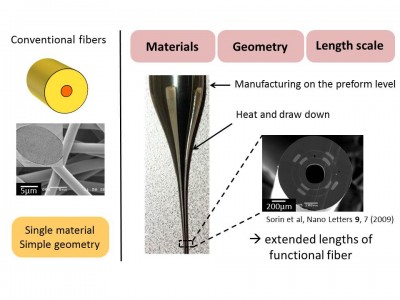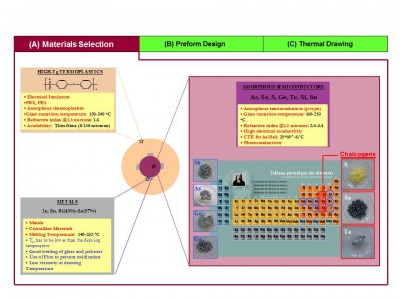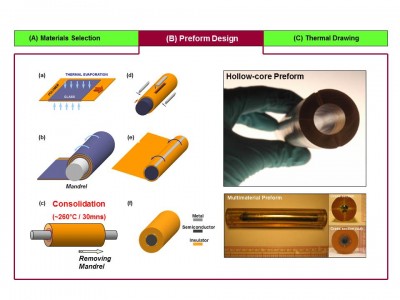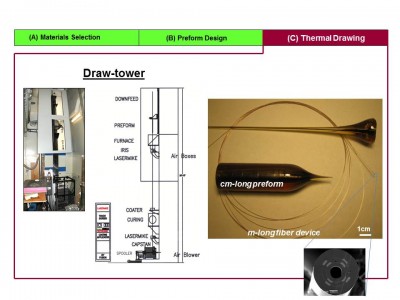Professor Yoel Fink
Our Fabrication Approach
Fibers are among the earliest forms of human expression; interestingly while the types of material that can be made into fibers has evolved over time, the basic structure and functionality, namely “what can a fiber and fabric” do, has not.
Traditionally, fibers were made of single materials and in very simple cylindrically symmetric geometries with internal length scales of macroscopic dimensions. In order to transform fibers into highly functional devices, three basic changes needed to happen: first, fibers had to be made of combinations of materials and not a single material; second, the fiber geometry and architecture had to be specifically designed; and finally, the features internal to the fiber had to be controlled at nanometer length scales.
We have introduced a new way of thinking about fiber materials which is enabled by a new material processing approach.
We begin our process with a selection of materials that have vastly different electronic and optical properties yet happen to all flow at a particular temperature (draw temperature). In fact, many of our fibers contain the materials that are in all electronic devices, namely metals, insulators and semiconductors.
We then assemble the materials into a macroscopic object which we call a preform; this object is a precise scaled-up version of the final fiber.
Finally, the preform is drawn into kilometers of functional fiber in a draw tower that consists of a furnace, a feed for the preform and a pulling device that provides the tension for the fiber draw.
Inter- and Intra- Fiber Integration
To achieve higher levels of sophistication, multiple devices can be integrated into a single fiber.
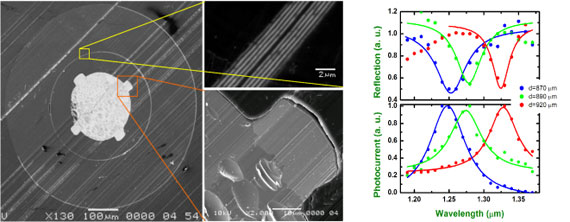
Narrow-band photo detecting fiber
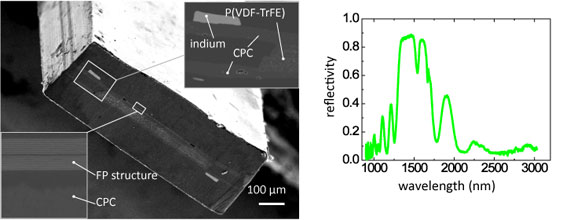
Fabry-Pérot integrated piezoelectric fiber
Bayindir, Sorin, Abouraddy et al Nature 431, 826 (2004) OPN, Optics in 2004 December 2004
The incorporation of multiple fibers into large-area arrays introduce functionalities not inherent in the single fibers.
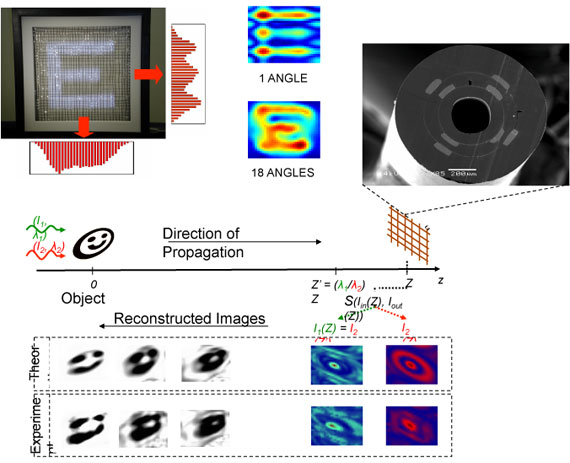
Lensless imaging
Abouraddy, Shapira et al Nature Materials, 5, 532 (2006) Sorin, Shapira et al Nano Letters, 9, 2630 (2009)
